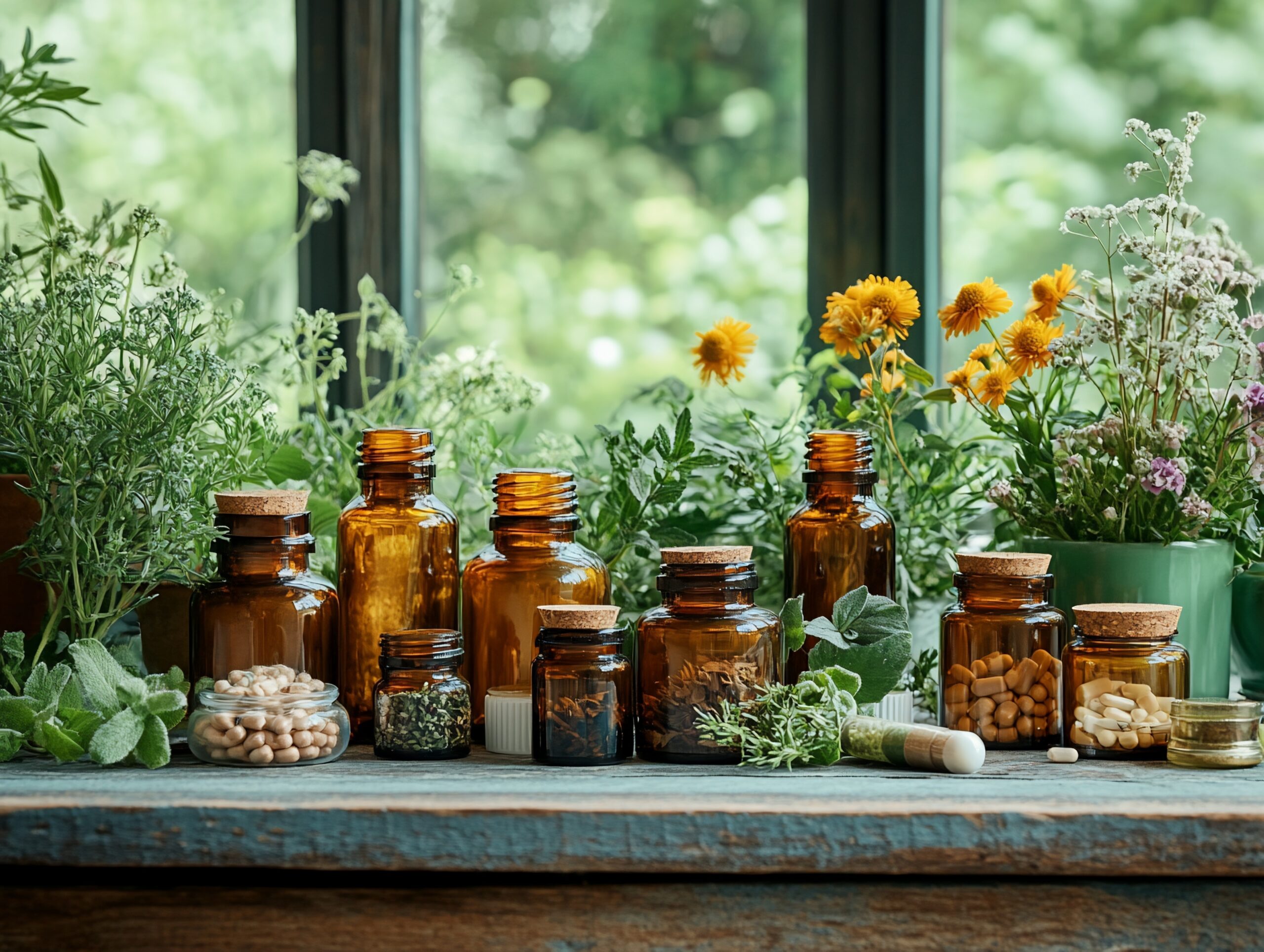Imagine feeling under the weather, perhaps with a scratchy throat or a tension headache. Instead of rummaging through a medicine cabinet stocked with store-bought remedies, you simply reach over to your windowsill, pluck a few leaves, and brew yourself a natural, healing tea. Sounds like a dream, right? Well, it’s possible with a homegrown indoor apothecary!
Plants have been used for healing for thousands of years, offering natural remedies for various ailments. Rich in antioxidants, vitamins, and phytochemicals, they help combat inflammation, boost immunity, and promote overall well-being.
Cultivating medicinal plants indoors provides fresh, chemical-free remedies and fills your space with vibrant greenery that purifies the air and uplifts your mood. Whether you’re a seasoned gardener or just starting, plenty of easy-to-grow medicinal plants are perfect for an indoor garden.
In this article, we explore some of the best powerful plants to start your very own healing haven!
Aloe Vera – The Skin Savior
Why Grow It? Aloe Vera is like the Swiss army knife of medicinal plants. Got a burn, cut, or dry skin? Snap off a leaf, and you have instant relief.
Growing Tips:
- Loves bright, indirect light – a sunny windowsill is perfect.
- Water sparingly – think desert vibes; too much water can cause root rot.
How to Use: Simply break open a leaf and apply the soothing gel directly to your skin. You’ll be amazed at how quickly it works!
Peppermint – The Digestive Dynamo
Why Grow It? Feeling bloated or queasy? Peppermint is your go-to herb for digestive relief. Plus, its refreshing scent can instantly lift your spirits.
Growing Tips:
- Prefers bright, indirect light but can handle some shade.
- Keep the soil moist but not soggy.
How to Use: Pluck a few leaves and steep them in hot water for a soothing peppermint tea. Add some local raw honey for a real treat! It’s like a hug for your stomach.
Lavender – The Calming Companion
Why Grow It? Lavender is well-known for its stress-relieving properties. Just brushing against its leaves releases a calming aroma.
Growing Tips:
- Needs lots of sunlight, so a bright spot is a must.
- Allow the soil to dry out between waterings – it likes things a bit arid.
How to Use: Create a lavender sachet for your pillow using dried buds and flowers, or brew a calming lavender tea to help ease anxiety and promote better sleep.
Chamomile -The Sleepytime Superstar
Why Grow It? Chamomile is like a lullaby in a cup. Known for its sleep-inducing and digestive-soothing properties, it’s a must-have for your indoor apothecary.
Growing Tips:
- Thrives in bright, indirect light.
- Water regularly, but don’t drown it
- Light, well-draining soil works best.
How to Use: Harvest the delicate flowers and steep them into a gentle, calming tea. Perfect for winding down at the end of the day.
Rosemary – The Memory Booster
Why Grow It? Need a little brain boost? Rosemary is known to improve memory and focus. Plus, it’s a delicious addition to your kitchen recipes.
Growing Tips:
- Needs bright, direct sunlight—a south-facing window works wonders.
- Allow the soil to dry out completely before watering again.
How to Use: Snip a few sprigs to brew a rosemary tea for mental clarity, or simply inhale its invigorating scent for an instant pick-me-up.
Tips for a Thriving Indoor Apothecary
- Choose the Right Pots: Ensure your pots have good drainage to prevent root rot.
- Sunlight is Key: Most medicinal plants thrive in bright, indirect light, so find a sunny spot. If indoor light is an issue, use a grow light.
- Water Wisely: Overwatering is the enemy- always check the soil first before watering.
- Harvest Often: Regular pruning encourages new growth and stronger medicinal properties.
Creating Your Healing Space
Starting an indoor apothecary is like bringing a little piece of nature’s pharmacy into your home. Not only do these plants offer natural remedies for common ailments, but they also beautify your space and enhance your well-being.
So, why not get started today? Grab a few pots, pick out your favorite medicinal plants, and watch as your indoor garden transforms into a sanctuary of health and tranquility.





